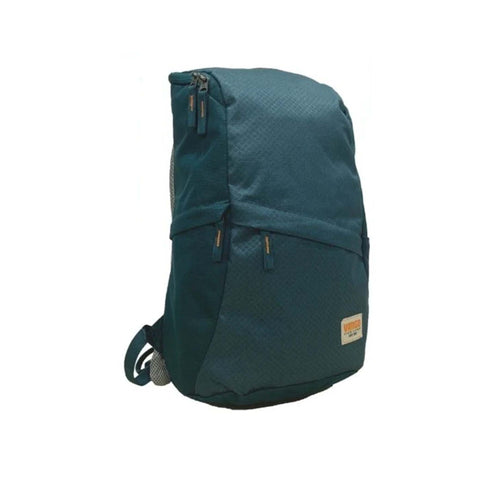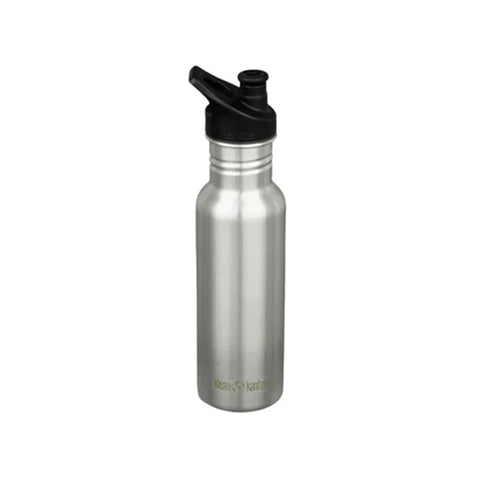A blog from Cath Prisk, Outdoor People CEO
Outdoor Classroom Day is very much a focus of what we do at Outdoor People. It’s a campaign we are very proud to support, forming the ‘Think Global’ part of our ‘Think Global Act Local’ ethos. In 2018, over 3.5 million children worldwide were involved. It's a global movement encouraging every school to make getting outdoors – to learn, play and explore – part of every child’s every day.
Last week, I was interviewed for Natursidan, a Swedish website, asking me about my role and how the campaign has grown. I thought I’d share an edit of that interview to explain why we are so passionate about this movement, and what we have done to make a fantastic idea, started successfully here in the UK, successful as a global movement.
Outdoor Classroom Day started life in 2012, here in London, as Empty Classroom Day. The brainchild of educator Anna Portch, the campaign quickly grew to a network of 600 schools in 15 countries. This first explosion was achieved simply through word-of-mouth. It was educators and supporters all giving their time for free and teachers telling other teachers.
I’ve been the Global Director for Outdoor Classroom Day since early 2015, when the campaign was adopted by the community activation organisation Semble (formerly Project Dirt). Semble’s purpose is to bring together community initiatives with volunteers and corporates to make change happen. Under Semble’s direction we have reached over 6 million children in more than 40,000 schools in over 115 countries, because we were simply able to turn up the noise.
Without question, the partnership brokered between Semble and the Dirt is Good team within Unilever was pivotal to the campaign’s growth. In 2015 Unilever’s Dirt is Good brands – Persil in the UK, Omo in Turkey, Brazil and Australia and Skip in Spain and Portugal – got involved.
'Free The Kids' campaign
Funding from Dirt is Good enabled Semble to appoint a dedicated team, including a Communications Lead and Global Campaign Manager. It paid for the iconic ‘Free The Kids’ film, distilling the argument to show how children’s access to the outdoors has been curtailed in recent years.
 Dirt is Good commissioned the research that showed that over half the children in the world – rising to over 75% in the UK – have less than an hour of outdoor play a day and compared it to the USA’s maximum security prisoners who get two hours a day. They screened the film about this statistic in every Picturehouse cinema and it’s gone viral, used by just about every campaigner for outdoors time across the world.
Dirt is Good commissioned the research that showed that over half the children in the world – rising to over 75% in the UK – have less than an hour of outdoor play a day and compared it to the USA’s maximum security prisoners who get two hours a day. They screened the film about this statistic in every Picturehouse cinema and it’s gone viral, used by just about every campaigner for outdoors time across the world.
The support from Dirt is Good also gave us some space to experiment with Facebook and Twitter advertising, and critically, to recruit NGO partners in countries around the world and leverage additional funding through Unilever’s local teams.
Funding is great – but knowledge and experience matter too
While the support of Unilever was critical, as third-sector organisations, we could bring our experience working on grassroots campaigns to speak the 'language' of NGOs and schools worldwide, and it’s this, as much as the funding which allowed us to scale.
Devolving elements of delivery has been a strength. Each NGO leads the campaign in their country, with their own websites and social media output, which enables them to engage teachers in their countries directly, with the Semble team making sure that globally, the campaign remains true to its purpose.
Using local NGOs allows us to adapt the campaign to cultural sensitivities and expectations. As our ‘Muddy Hands’ research project proved, attitudes to outdoor learning and play vary considerably across the world – as do barriers to access, although the common core remains consistent across the planet. Whether teachers have to negotiate snowdrifts or sandstorms the desire to get children outside more is shared universally.

Across the partnership of ten NGOs involved in the campaign we share skills and knowledge, and then Unilever teams themselves help us know what is possible in terms of sharing the information further using social media. Across the partnership, we have developed skills in the use of campaign tools of UTMs, pixels and segmented newsletters. Some DiG teams have gone far further, putting promotion of the campaign on pack and in stores, brokering ‘influencers’ and PR to make the campaign famous and sponsoring the research underpinning the rationale for the movement.
Organic growth comes from simplicity
For us the logic is simple – schools are beacons in their community, and there is no institution better placed to act as the campaign advocate, making it clear to parents and the wider community that it is critical for children to be outdoors every day.
When teachers hear about the campaign, they want to get involved – but one of the key elements of success within the campaign is that the core idea – celebrate playtime and outdoor learning – is simple, but can scaled up or down, and adapted to circumstances.
If you get outside once a year – great! You’re part of the campaign… from this starting point, you can work towards getting your class out every day.

Quite often, the campaign takes root in a school because of the action of one teacher. It starts with one class, the next year a few classes, then after that the whole school. And they tell their friends. That’s how teachers help change the culture in their schools. And from there it’s a short step to changing the culture of their community, making getting outdoors just a bit more normal.
Outdoor Classroom Day also connects across schools. It builds a collective worldwide community that support each other, making getting outdoors to learn, play and explore feel like something we can do every day.
Early on in the campaign development, one head teacher, responding to our question on the sign-up form: “What kind of school are you?” self-categorised as: ‘Lonely’.
Well, we now have eighteen Outdoor Classroom Day websites in thirteen languages, including Finnish, Vietnamese and Brazilian Portuguese as well as French and Spanish.
Keeping the momentum going
Every year it’s a struggle to keep the momentum going. The teams in the non-profit, schools-focused NGOs in Portugal, in the UK, in Columbia, Brazil, Turkey, Indonesia and Australia are making tiny budgets go a very long way, matching funding where they can and encouraging their communities of schools to sign up and share the message. They all deserve thanks and recognition.
The team at Semble work year-round, matching up funds from DiG with any other resource we can to build the global campaign that reaches across the USA and Canada - over 400,000 children got involved last year in over 6000 schools across the North American continent - as well as reaching to over 100 other countries. On the interactive map we can see schools signed up in Latvia, Poland, in Paraguay and Patagonia, in New Zealand and Nigeria. Teachers tell other teachers, share the social media stories and then share what they are doing.
Every year it’s worth the struggle because of the real change and happiness the campaign brings. The stories are amazing.
The teacher in Australia telling us that a child with selective mutism decided to talk because they were outdoors. The teacher from the UK telling us about how after doing Outdoor Classroom Day last year she has now got her whole school to get outdoors for the whole week, doing lessons about the Sustainable Development Goals. The teacher from the USA saying that Outdoor Classroom Day finally persuaded her colleagues to reinstate recess because they saw how happy the children were. The three schools in Pula, Sulawesi that joined in despite the fact their schools had been destroyed in the Tsunami last year. The Indian one-room rural school that said: “we now realise that we may not be rich in resources, but we are very rich in environment”.
Find out more and sign up:
Global Outdoor Classroom Day campaign: https://outdoorclassroomday.com/



